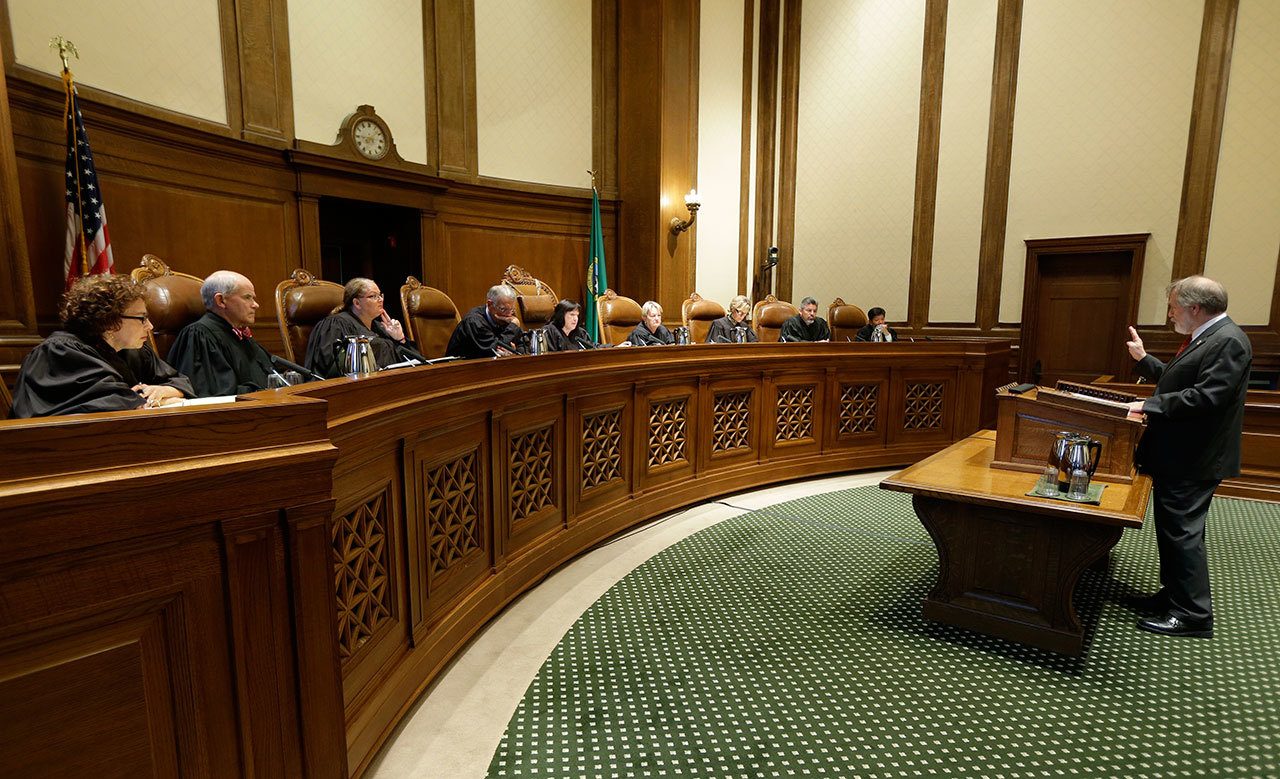By The Herald Editorial Board
State lawmakers are either going in circles on a merry-go-round or are running a marathon as they have worked to address a nearly 10-year-old lawsuit that charged the state has not fully funded public K-12 education as required in the state constitution.
The competing metaphors were offered Wednesday by attorneys representing the original plaintiffs (merry-go-round) and the state (marathon) as the state Supreme Court heard an update on the Legislature’s progress.
The court, in its 2012 McCleary decision, ordered the state to fully fund basic education, then increased the pressure in 2014 with a contempt of court ruling against the Legislature when it didn’t see adequate progress, fining the state $100,000 a day.
By either measure, long-distance run or amusement park ride, the state is neither near the finish line, nor close to grabbing the brass ring. And time is running out. The deadline, set by the Legislature and adopted by the court, is 2018; to meet it, a fix likely must be found before the end of the 2017 legislative session.
While the Legislature since 2012 has added more than $2 billion in education spending on school transportation, materials and supplies, K-3 class sizes and all-day kindergarten, some estimates put full funding of K-12 education at an additional $3.5 billion every two years. And other issues have been left unresolved, particularly inequities in support among the state’s 295 school districts caused by the state’s over-reliance on local school levies to supplement salaries of teachers and other school employees.
The work that remains was obvious to the court, particularly Chief Justice Barbara Madsen, who said lawmakers had focused too much on the amount it needed to spend and not enough on how basic education will be funded and where that funding will come from.
Lawmakers need to settle not only on a funding source and an amount but on how the levy system will be equalized and whether the state or local districts will negotiate salaries and benefits for teachers and other employees.
Those are sticky debates to address and find solutions to in one session.
Much of Wednesday’s discussion fell on if and how to prompt action by the Legislature on those solutions.
The state’s deputy solicitor general, arguing that lawmakers were 15 miles into a marathon, maintained the state had shown progress and that the contempt citation and the $100,000-a-day fine should be lifted.
The plaintiff’s attorney held that lawmakers have made promises before and called for greater sanctions, including closing schools if the deadline is not met or clawing back business tax incentives to provide the necessary funding.
Seeking the same persuasion, state Superintendent of Instruction Randy Dorn has sued seven school districts, including Everett, alleging that the districts are illegally using local levy funds to pay for a significant portion of salaries for teachers and others. Dorn’s intent is to force action by the Legislature, but it risks the education of children in those districts on uncertain outcomes in the November election and the next legislative session.
Many doubt the daily $100,000 fine’s ability to prod lawmakers. The Legislature ignored the court’s order to set up an account for the fine, instead figuring it would use reserves when and if it actually had to pay up.
Regardless of what other coercion the court believes is necessary, it should let the finding of contempt remain and allow the pot to grow.
The fine’s effect may be a cumulative one, one that grows over time. With each day, another $100 grand is added. As of today the fine is $39.3 million.
We intend to provide a running tally of the fine on this page, to serve as a reminder not of the fine itself, but as to the daily costs to children in underfunded schools.
Talk to us
> Give us your news tips.
> Send us a letter to the editor.
> More Herald contact information.

























